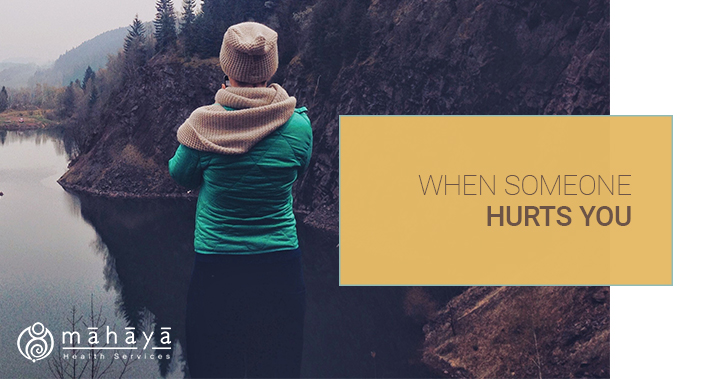
By Vaishali Patel
We’ve all been there.
We’ve all been hurt by another person: a parent, a partner, a friend, a stranger.
You feel emotionally punched in the gut, for a second or so you feel you can’t breathe.
Even afterwards, sometimes just thinking about it brings a pang of pain.
Sometimes the pain sent to us was intentional, sometimes it wasn’t.
Regardless, you still feel the pain.
Reacting To Pain
There are so many ways we can react to being hurt.
Some of us internalize it, try to absorb it in a way.
We might blame ourselves, or convince ourselves we deserved to be hurt.
Sometimes we put on a brave face and try to convince others and maybe ourselves we aren’t hurting.
We can wallow in the pain, possibly isolate ourselves.
We don’t want to make things worse, so we try to manage it within ourselves.
But what ends up happening is that we suffer even more from the pain.
Other ways to react are forms of externalizing it – either finding ways to “pay them back” or lashing out at others instead.
You know the expression, “hurt people hurt people.”
Instead of resolving what’s going on, we try to displace or deflect the pain, hoping that we can rid ourselves of it.
But, it doesn’t work.
It just spreads the pain – now more people experience it, and your pain, to some degree, still sits with you.

So What Should You Do?
So, if neither imploding nor exploding is a healthy option, what should we do?
How should we handle the pain given to us?
My best approach to receiving pain thus far has been to work to neutralize it to the best of my ability.
While we can’t eliminate the feeling of pain, or the anxiety, depresion, or other struggles that may come with it, what we can do is heal, learn from it, and build resilience.
This takes exploration, compassion (for self and the other) and time.
1. Exploration
In order to extract the most wisdom from our painful experiences, we must explore.
This will require us to sit in the pain at times, to better understand things like what triggers our pain, what unresolved pain we carry, why this particular incident hurts.
On an interpersonal level, we also should consider what expectations we have for the other person and whether they are legitimate.
2. Compassion
All humans are flawed.
We all are innately good people who do some bad things (sure, some of us do more bad things than others, but that’s another topic altogether).
No one is born into this world intending to hurt others.
Our intentional hurt is often caused by an unresolved hurt we’ve experienced.
Our unintentional hurt is often caused by simply not knowing.
If we can remember this when we’re hurt by someone, it can help us turn our negative emotions towards them (anger, sadness, disappointment) into compassion.
As well, It’s valuable to remember we are not made of steel.
We all hurt.
When you hurt, if you can acknowledge that it’s a human experience and be kind to yourself at the time, you can prevent it from creating more internal damage.
3. Time
We all know the expression, time heals all wounds.
Although sitting idle until it stops hurting is not the answer, we do have to acknowledge that as time occurs, healing occurs, perspectives shift, wisdom grows, thoughts and emotions marinate.
Even if you flood yourself with exploration and compassion early on, without letting these processes slow release, you aren’t extracting the most you can out of them.
The healing is only partial, possibly superficial.
Book An Appointment With Mahaya Health
These factors can help alleviate some of the suffering from experiencing pain.
Obviously small offences would take less of each to be able to move on from, large ones will take more.
So, the next time you sit with pain, consider how much exploration, compassion, and time you have given to the matter.
It’s not always easy to do this on your own, but there is help.
If you need help, book an appointment with a psychotherapist here at Mahaya Health.
